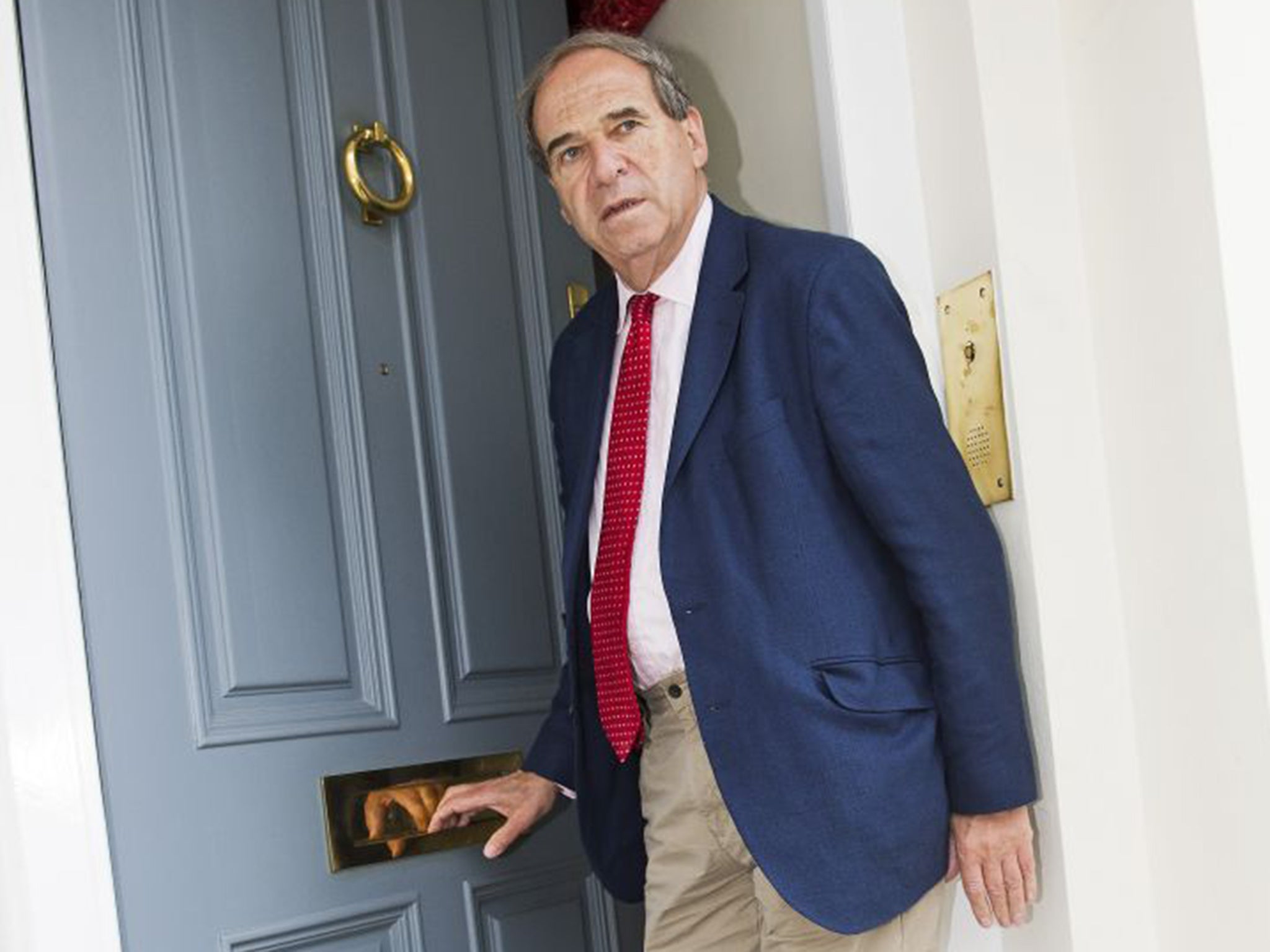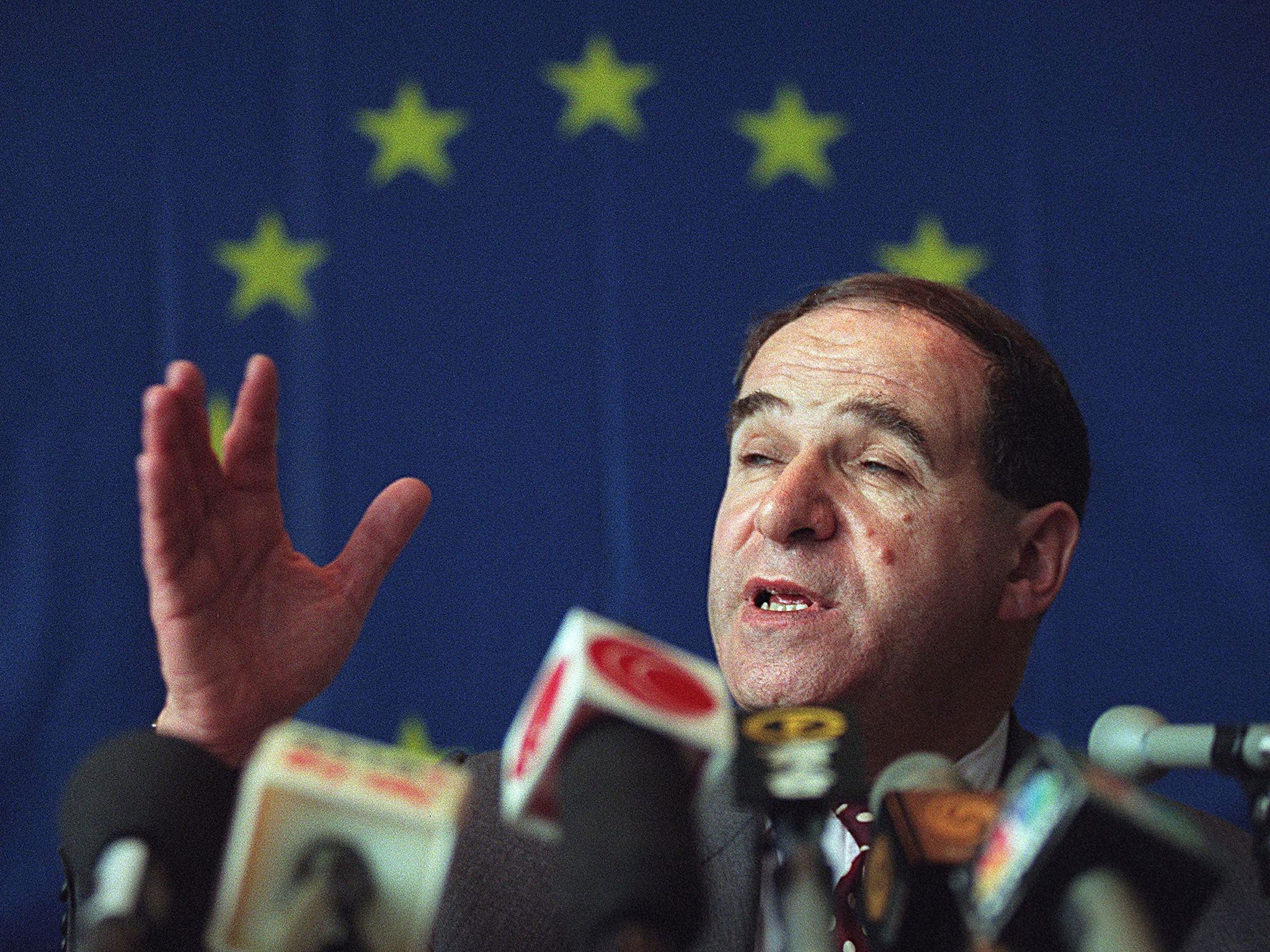Lord Brittan: Police 'failed to tell' dying peer he would not face prosecution despite legal advice
Former cabinet minister died in January with allegations still hanging over him

The police stand accused of failing to inform the former Tory cabinet minister Lord Brittan that he would not face prosecution over a rape allegation, allowing him to go to his grave in January of this year with the claim still hanging over him.
The Independent on Sunday can reveal that the initial legal advice given to the police in August 2013 was that the evidence against him fell short of the standards required to lead to a prosecution. The police agreed, and decided against interviewing Lord Brittan. When the alleged victim, known by the pseudonym “Jane”, was told the evidence was insufficient, she encouraged Labour MP Tom Watson to take up her case. The MP wrote to Alison Saunders, the Director of Public Prosecutions, asking her to ensure that all proper procedures had been followed. The police reopened the investigation, but when the peer was interviewed, he denied he had met the woman in question. Six months later Brittan died with the threat of prosecution still hanging over him.
The CPS opinion has never been made public, but the IoS can reveal that concerns were expressed as to whether, assuming an encounter took place, “the suspect was unaware that the victim was not consenting to the sexual intercourse between them”. “On the victim’s evidence alone,” says the advice, “there is no evidence that the suspect had asked the victim for sex, that he had demanded sex, that he had forced the victim to [lie] on the bed, neither did he ask her to remove her clothing”.

It was reported last week that the CPS was refusing to tell the police what its opinion was of the allegations about Brittan. Jane was quoted as saying “the detective who told me seemed disappointed that neither the Met, nor I, would be told whether Leon Brittan could have been prosecuted. Unfortunately I have to live with the fact.” But this version of events was denied by the CPS on Friday in an unusually strongly worded statement. It confirmed that in July 2013 it had provided police with “early investigative advice” (which the IoS has seen). The statement continued that, since in spite of their later investigations the police “were never able to conclude that the evidential test for a full charging decision was met” and, because “the state of the case fundamentally remains the same as it was”, the CPS stood by its original guidance.
However, the police failed to communicate the position to Brittan. The former cabinet minister David Mellor, a friend of the peer, said: “There seems to have been no reason to put a dying man through the humiliation of being interviewed under caution save that Tom Watson demanded that the matter be reopened. He produced no valid evidence as to why it should be reopened but the police followed the path of least resistance and caved in. What public interest was served by them allowing themselves to be bullied in this way?”
Jane’s account was that when she was 19, in 1967, she had gone to Leon Brittan’s flat with him to pick up some records to take to a party and that, while there, he had sex with her against her will. The police were unable to find witnesses who could corroborate that Jane had met him, and the peer, as well as denying having met her, said he had never lived in a basement flat, as she claimed.
Some believe the crime was not, in the jargon, “made out”, ie there was insufficient evidence of a crime having been committed. DCI Paul Settle, who was leading the investigation, informed Jane that, in the absence of further evidence, the police could take no further action. Police sources say every effort was made to persuade her that her word was not doubted, but that the prospects of securing a conviction were minimal.
Mr Watson wrote to the Director of Public Prosecutions in April 2014, accusing the police of outmoded thinking on rape and asking for the allegation against Lord Brittan to be seen in the context of other allegations against him (of child abuse). The police changed tack and a different officer was put in charge of the case. Subsequent approaches were made to the CPS during Lord Brittan’s lifetime, but the legal advice remained the same.
In Jane’s evidence, she said that on entering the flat, Brittan had locked the front door behind him. She said she took refuge in the bathroom, whereupon he became angry. Having failed to escape through the bathroom window, she then came out of the bathroom, went into the bedroom and he raped her on his bed.
Jane said she believed Brittan was determined to have sex with her, but the advice of the CPS’s specialist rape lawyer was that this belief seemed to be based solely on the fact the he had locked the front door, which she had not challenged.
Further, she put her concern down to having been abused in the past, but the CPS lawyer said there was no reason for Brittan to have known anything about that.
After going to the bedroom, according to the legal advice, “she then admits she took off her own clothes and lay on the suspect’s bed. … On the victim’s evidence alone, there is no evidence that the suspect had asked the victim for sex, that he had demanded sex, that he had forced the victim to [lie] on the bed, neither did he ask her to remove her clothing.”
The advice is that a jury would be likely to accept that Brittan believed she wanted to have sex with him. “It could even be suggested that he believed that she was in fact inviting him to have sex with her.” The lawyer says the fact that she cites no evidence that she sought to avoid having sex with Brittan “something that I think may cause the jury concern”.

The following morning, said Jane, Brittan mentioned the possibility of the pair moving in together, and expressed the hope that they might meet that evening. To her, seemingly, this was evidence that he thought he had done nothing wrong, a view with which the CPS’s lawyer concurs, but from a different standpoint: “I’m of the view all of this evidence supports the fact that the suspect was unaware that the victim was not consenting…”
Lord Brittan’s lawyer and the CPS were unavailable for comment.
Mr Watson said: “In these delicate and sensitive cases it is vital that all parts of the criminal justice system apply the rules consistently. There is a responsibility to both survivors and alleged perpetrators to get this right.”
The spokesman for the Metropolitan Police said concerning their review of the case in 2014: “After further consultation with the CPS, it was confirmed that those additional inquiries had not strengthened the original evidence. Police subsequently carried out a further review of the case which has now concluded.”
